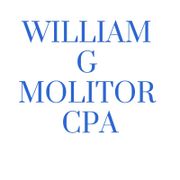
When you freelance, you get to enjoy freedoms that don’t come with standard full-time jobs, such as making your own schedule and choosing your own clients. Although you’ll have more breathing room, being self-employed requires taking on on additional responsibilities, especially when it comes to tax planning. If you’re new to freelancing, here are a few tips to help you tackle tax preparation with confidence and avoid troubles with the IRS.
5 Tax-Planning Tactics Every Freelance Should Know
1. Organize Your Books
Monitor receipts for services rendered and expenses by using a standard accounting package—such as QuickBooks®—to track the flow of accounts receivable and payable. The reports prepared by these sorts of programs make it much easier to estimate taxes and can streamline bookkeeping tasks.
2. Make Estimated Quarterly Payments
When you’re employed by a company, your earnings are subject to withholding, and you need only to pay your taxes on Tax Day. If you’re a freelancer, you’ll likely need to make estimated payments every quarter to cover both income and self-employment taxes. Keeping up with these payments will help you avoid potential IRS penalties and keep you from having to pay a massive bill at the end of the tax year.
3. Maximize Retirement Contributions
 Certain retirement plans, such as a traditional individual retirement account (IRA), allow you to save for retirement and minimize your taxable income with pretax contributions. To get the most from these benefits, consider contributing the maximum amount allowed by your plan.
Certain retirement plans, such as a traditional individual retirement account (IRA), allow you to save for retirement and minimize your taxable income with pretax contributions. To get the most from these benefits, consider contributing the maximum amount allowed by your plan.
4. Deduct Self-Employment Expenses
Apart from deductions for dependents, student loan debt, and health care expenses, there are other itemized deductions you may qualify for as a self-employed individual. For example, many freelancers can deduct expenses for maintaining a home office, gas mileage, and purchases for work-related appliances, equipment, and supplies.
5. Don’t Wait to File
Many factors can influence tax filings for freelancers. Don’t wait until the last minute to file. By getting a head start, you can calculate your liability, prepare necessary payments, and avoid mistakes on your return. Early preparation can also help you meet IRS deadlines and avoid late penalties.
Refining your tax strategy can be tough for busy freelancers. Self-employed professionals in the St. Louis metropolitan area rely on William G. Molitor, CPA, for help with tax planning and preparation. They’ll carefully review your finances to minimize your liability and help you avoid IRS penalties. In addition to tax preparation services, this firm also offers other resources to fine-tune your finances, including bookkeeping. For more details about their accounting services, visit them online, or call (636) 926-0502 to schedule a consultation.
About the Business
Have a question? Ask the experts!
Send your question

